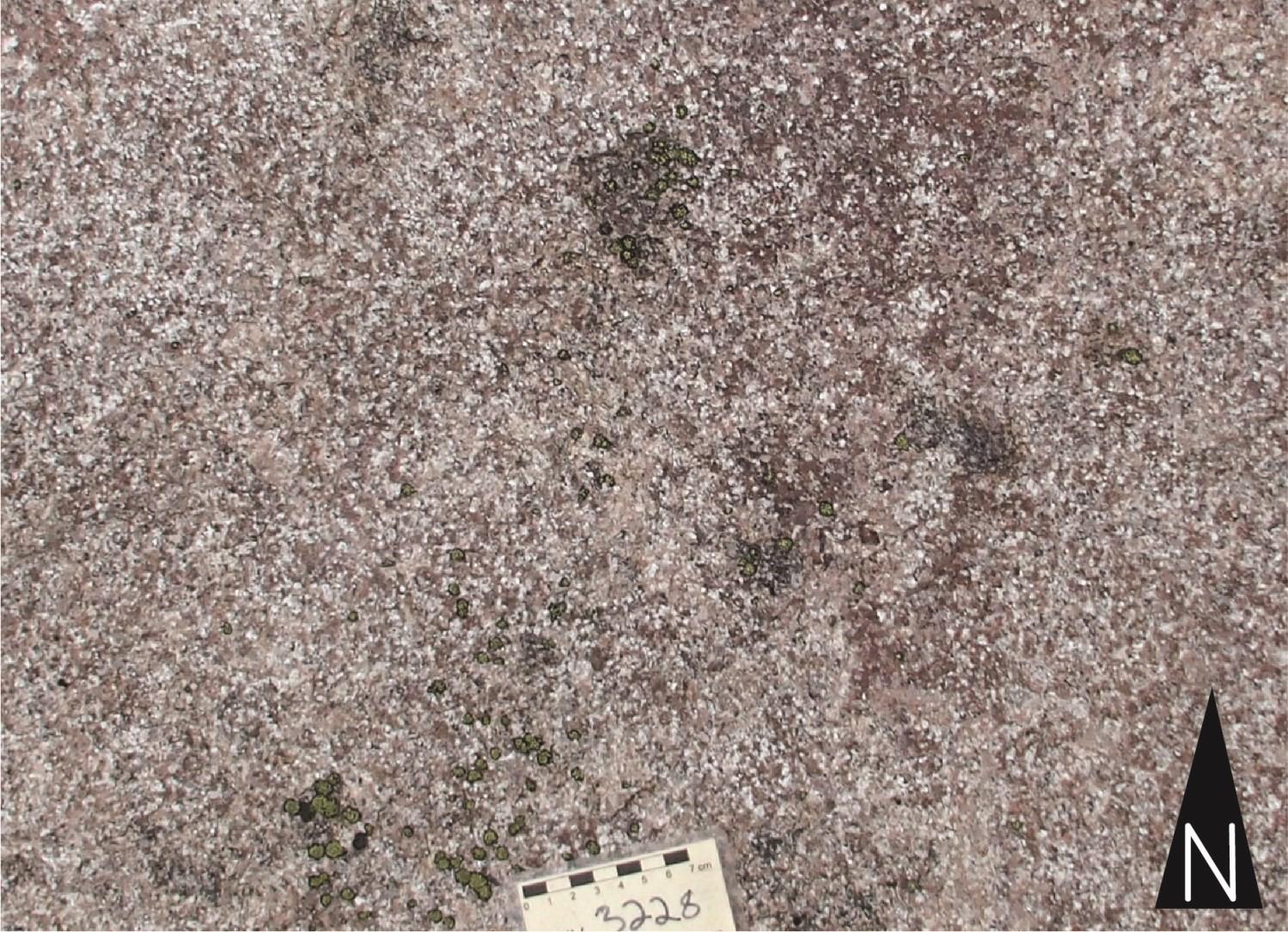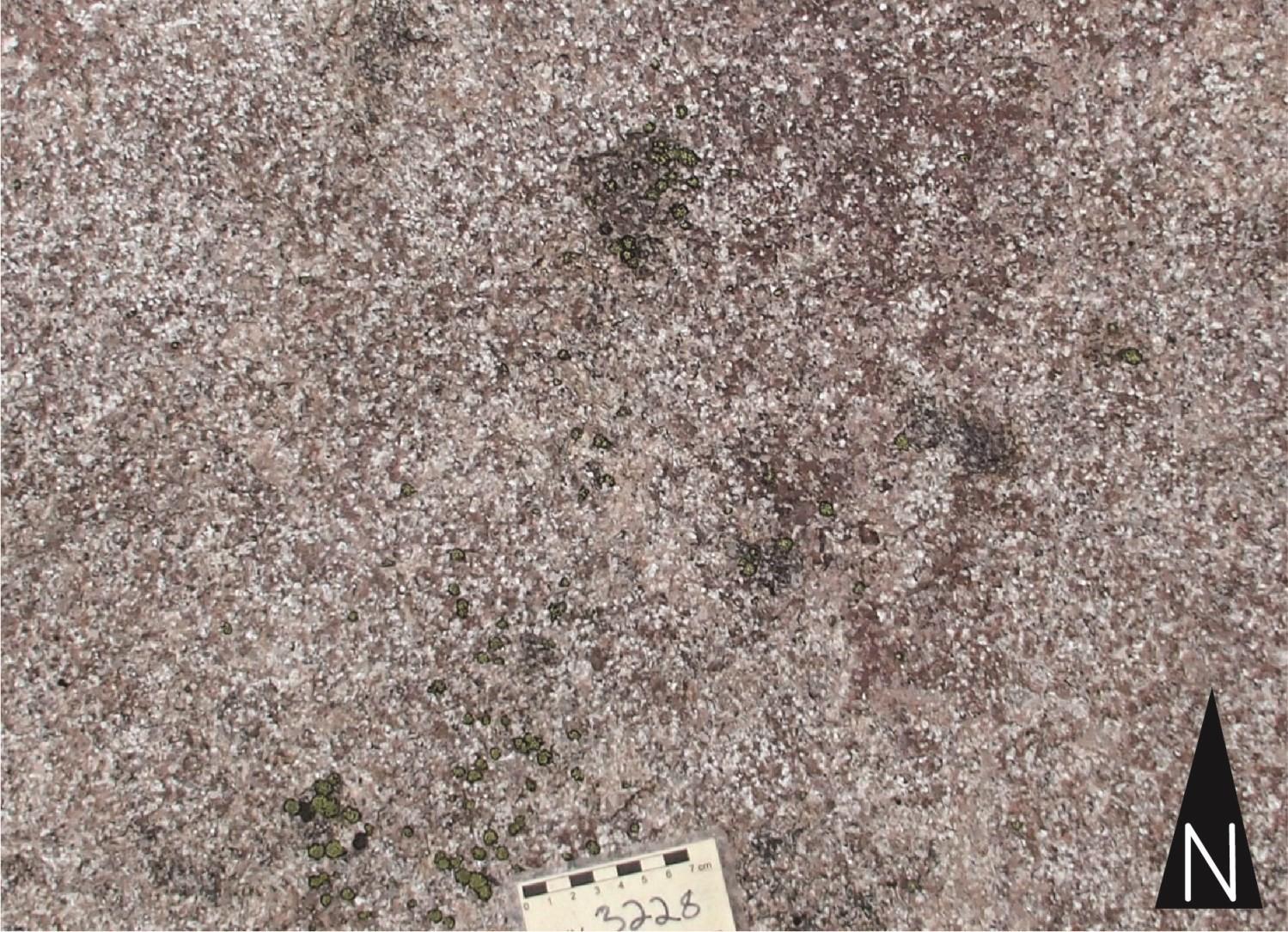
Last modified:
Translation of original French
| Author: | Leclerc and Caron-Côté, 2017 |
| Age: | Precambrian / Archean / Neoarchean |
| Reference section: | |
| Type area: | The Pinède Grise Pluton is mainly exposed in the eastern part of NTS sheet 32K08, south of Amisquioumisca Lake. |
| Geological province: | Superior Province |
| Geological subdivision: | Opatica Subprovince |
| Lithology: | Biotite granite |
| Unit type: | Lithodemic |
| Rank: | Lithodeme |
| Status: | Formal |
| Use: | Active |
- None
-
Background
The Pinède Grise Pluton is a new unit introduced by Leclerc and Caron-Côté (2017).
Description
 The Pinède Grise Pluton is mainly composed of medium to coarse-grained granite pinkish gray to beige in altered surface and medium pinkish gray in fresh exposure. Granite has a massive and equigranular structure, but locally develops a foliation. It contains 1 to 3% biotite and can include up to 2% magnetite. Hematite and epidote are the most common alteration minerals. The Pinède Grise Pluton contains a minor proportion of medium-grained biotite magnetite monzonite and porphyritic monzodiorite with K-feldspar, biotite and hornblende phenocrysts. The unit is commonly cut by granitic pegmatite intrusions and contains xenoliths of foliated to gneissic diorite.
The Pinède Grise Pluton is mainly composed of medium to coarse-grained granite pinkish gray to beige in altered surface and medium pinkish gray in fresh exposure. Granite has a massive and equigranular structure, but locally develops a foliation. It contains 1 to 3% biotite and can include up to 2% magnetite. Hematite and epidote are the most common alteration minerals. The Pinède Grise Pluton contains a minor proportion of medium-grained biotite magnetite monzonite and porphyritic monzodiorite with K-feldspar, biotite and hornblende phenocrysts. The unit is commonly cut by granitic pegmatite intrusions and contains xenoliths of foliated to gneissic diorite.
Thickness and distribution
The Pinède Grise Pluton is located north of the lake of the same name in NTS sheet 32K08. Of ovoid shape, it shows an E-W elongation and approximate dimensions of 25 km x 10 km.
Dating
None.
Stratigraphic Relationship(s)
The Pinède Grise Pluton intrudes dioritic gneisses of the Chensagi Suite (nAcng). It also contains metric to decimetric xenoliths of these same gneisses, which confirms its intrusive nature. This unit is also cut by a Neoarchean gabbro dyke from the Lac Esprit Dyke Swarm (pPesp).
Paleontology
Does not apply.
References
| Author(s) | Title | Year of Publication | Hyperlink (EXAMINE or Other) |
|---|---|---|---|
| LECLERC, F. – CARON-CÔTÉ. | Levé géologique dans la Sous-province d’Opatica au nord-est de Matagami (Région du lac Amisquioumisca). Ministère de l’Énergie et des Ressources naturelles, Québec. | 2017 | Bulletin géologiQUE |

